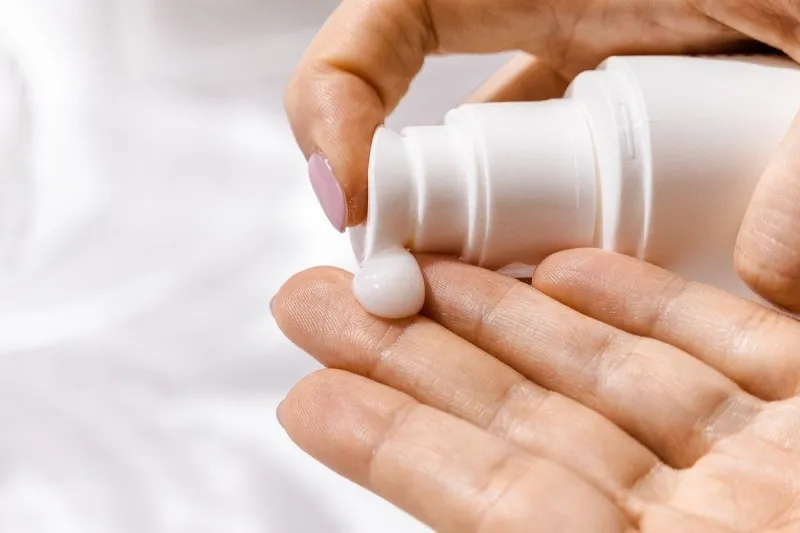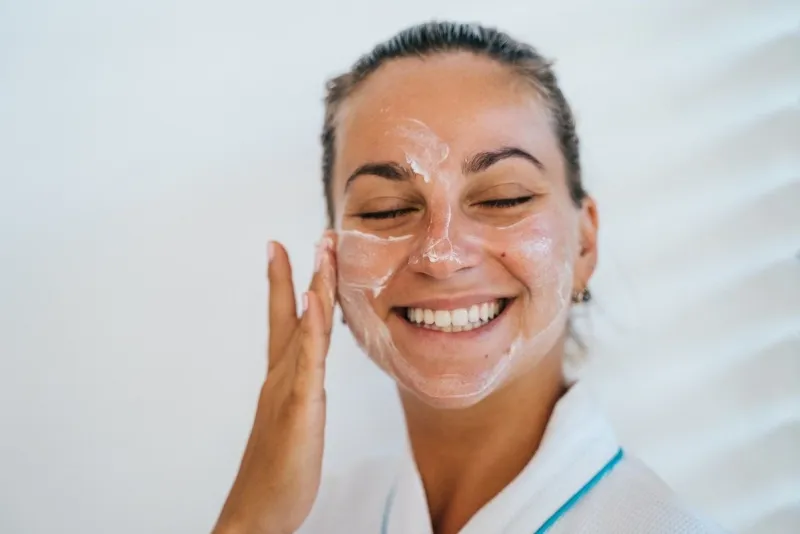
Take a look at your bottle of sunblock. Have you ever wondered what the “SPF” on it stands for? Why is it on every bottle of sunblock? And what do the numbers “15”, “30”, and “50” mean?
If you’ve ever wondered why dermatologists always rave about SPF, you’re in luck. Below, we’ll give you the lowdown on everything you need to know about SPF.
What does SPF stand for?
SPF or Sun Protection Factor is a number that represents the amount of time a product, such as a sunscreen, can protect you from the sun’s ultraviolet B or UVB light. It corresponds to the time it takes for UVB to burn your skin with sunscreen versus the time it takes to burn without sunscreen. SPF 30 sunscreen, for example, would take you about 30 times longer to get sunburnt.
How Is the SPF Number Determined?
Laboratory tests are done to determine the SPF number. These experiments expose volunteers to UV light that mimics the sun at its most intense time (i.e. noon). Some volunteers wear SPF sunscreen, while others don’t.
Then, the time it takes for protected skin to redden is divided by the time it takes for unprotected skin to redden. If it took 300 seconds for the protected skin to burn, and 10 seconds for unprotected to burn, the SPF number would be 30 (300/10).
However, it’s worth mentioning that the amount of time it takes to get sunburnt varies greatly. In general, it takes about 10 minutes for people with Skin Type I (very pale) to get sunburnt, but people with Skin Type VI (very dark brown) take about 9 times longer. With that being said, it would be best to buy sunscreen that’s tailored to your specific skin type.
What Does the SPF Rating Mean?
The SPF number corresponds to the amount of time you can spend in the sun, but it also correlates to the UVB rays it can block. SPF 15, for instance, can block 93 percent of UVB. SPF 30 blocks 97 percent, SPF 50 blocks 98 percent, and so on. The variations are trivial, and it’s worth noting that none of the SPF ratings can block 100 percent of UVB.
A common misconception is that the greater the SPF rating, the longer you can stay in the sun. The truth is that you can wear any sunscreen with SPF, as they can all protect your skin from the sun. The SPF 15 vs. 30 debate? Both do the same thing, so no sunscreen is superior.
You’ll need to reapply sunscreen every two hours, anyway. Regardless of the SPF rating, your sunscreen won’t stick to your skin forever, so there’s no point in wearing a sunscreen solely for its SPF rating.
Look Beyond the SPF Rating
The SPF rating corresponds to the protection it provides against UVB. The problem is that UVB isn’t the only thing you should be worried about — your skin will be exposed to ultraviolet A or UVA, so you’ll need a sunscreen that provides extra protection.
When buying sunscreen, your best bet would be one with the “broad-spectrum SPF” label. Broad-spectrum means your skin will be safe from every kind of UV light, including UVB and UVA. Broad-spectrum sunscreen still has SPF but it provides better sun protection.
What is UVA? Like UVB, UVA can also cause sunburns, but UVA can penetrate the skin more and cause premature skin aging.
Why Use SPF, Anyway?
People tend to wear sunscreen only in the summer, but sunscreen should be part of your year-round skincare routine. Here’s why you should always slather on sunscreen, whatever the season:
- It blocks sunburn-causing UVB
You will get sunburnt if you spend a lot of time under the sun without wearing sunscreen. Sunburns, particularly second-degree burns (sunburns that blister) can raise the risk of skin cancer and cause other skin concerns. For that reason, it’s vital to wear SPF as it blocks the UVB light from the sun, which is what causes sunburn in the first place.
- It slows down the signs of aging
Your efforts to fight against aging will go to waste if you don’t use SPF. Over time, unprotected sun exposure can cause damage to your skin’s collagen and cells. This can lead to signs of skin aging or what’s commonly known as photoaging. If you’re in your 20s to 30s, applying (and reapplying) sunscreen regularly will allow you to retain your glow. By wearing sunscreen, you’ll be able to guarantee that your skincare routine can work its magic!
- It reduces the risk of skin cancer
According to the American Academy of Dermatology, 9,500 people are diagnosed with skin cancer each day. You don’t need to add to that statistic. Reduce the risk of skin cancer by applying broad-spectrum SPF on a daily basis, particularly if you spend a lot of time in the sun. But even if you work indoors, you should still apply sunblock if you’re seated next to a window. Constant sun exposure can still cause skin disease.
- It reduces the risk of discoloration
Excessive sun exposure can also cause sunspots. Also known as liver spots, these are discolorations that appear on any part of your skin. Although sunspots do not need treatment (they’re merely imperfections), they can make you look older than you actually are. Fortunately, you can stop these spots from appearing later in life with SPF.
- It lowers the risk of breakouts
Contrary to popular belief, SPF does not cause acne. It can actually prevent it. Remember that when you’re sunburnt, your skin will be inflamed. That is precisely why it’s important to apply SPF regularly — it lowers the risk of flare-ups so your acne won’t get worse.
What SPF Should I Use?
There are a couple of things to consider when choosing which sunscreen with SPF to go for, including:
- Broad-spectrum protection
To fight the signs of aging, dermatologists recommend buying broad-spectrum sunscreen that can block both UVA and UVB. Bottles with the “broad spectrum” label can effectively shield your skin from every spectrum of UV light.
- SPF 30 or greater
Dermatologists suggest using a broad-spectrum sunscreen with SPF 30 or greater, as these ratings are better at blocking UVB light. In general, the greater the rating, the better it is at blocking UVB. If you go down to SPF 15, you’ll get basic sun protection, but it can only block about 93 percent of UVB. The gap in protection (percentage-wise) gets more and more marginal if you go for SPF in the 30 to 100 range.
Beware of the “waterproof” labelThe Food and Drug Administration (FDA) does not allow sunscreen to be labeled as waterproof or sweatproof. This is because sunscreen can’t be either — it can only be water-resistant. Water-resistant sunscreen can maintain its SPF level even after it’s been submerged in water for 40 to 90 minutes.
Your skin tone
People with pale skin tend to get burnt faster than people with pigmented skin. With that said, if you’re the former, it would be best to wear sunscreen with a higher SPF rating. As a rule of thumb, however, broad-spectrum sunscreen with an SPF of 30 works for everyone, whatever the skin tone.
- Your skincare routine
Take into consideration your skincare routine. If you regularly use retinol or retinoids, your skin is going to be more sensitive to the sun, so wear sunscreen with SPF 30 every day.
- Your sun exposure
There’s no need to wear sunscreen with an SPF of, say, 50 if you spend your day indoors. On days when you’ll be under the shade, SPF 15 will be sufficient. On the other hand, if you’ll be outdoors for more than two hours, wear sunscreen with at least an SPF of 30.
- Your personal references
You’re going to be wearing sunscreen daily, so it should be something you want to wear. Even if your sunscreen is the “best”, if it’s too uncomfortable, it won’t be worth it because you probably won’t wear it, anyway. Opt for a skincare product that you’ll look forward to applying (and reapplying).
What’s the Difference Between Chemical and Mineral Sunscreen?
As you shop for a sunscreen with SPF, chances are you’ll encounter the words “chemical” and “mineral”. These are the two types of sunscreen.
Chemical sunscreens contain chemicals (oxybenzone, octisalate, octocrylene, etc.) that absorb UV. Mineral sunscreen, on the other hand, works by creating a barrier on the skin. This barrier contains zinc oxide and titanium dioxide, minerals that block UV rays before they can be absorbed by the skin.
No type of sunscreen is better, as they can both effectively ward off UV. However, individuals with sensitive skin will likely be better suited with mineral sunscreen, as it merely sits on the skin. Chemical sunscreen has to penetrate the skin, and this can cause irritation.
Don’t Let Sunscreen Do the Heavy-Lifting
Your sun protection “strategy” shouldn’t involve sunscreens alone. Don’t forget sunglasses, sunhats, and shade! Here’s how you can keep your skin protected, aside from applying sunscreen:
- Cover up. Wear long-sleeved clothing when you’re out in the sun. If possible, wear a wide-brimmed hat (that’s not a straw hat) to protect your face as well as the back of your neck. Consider dark-colored clothing as these can absorb UV light.
- Limit sun exposure. Try not to spend too much time in the sun. Avoid sun exposure from 10 a.m. to 4 p.m. as this is when the sun’s rays are the strongest.
- Say goodbye to tanning beds. Tanning beds can cause skin cancer. If you want a tan, choose safe products such as a spray-on tan. Opt for UV-free alternatives.
FAQs About SPF & Sunscreen
When Should You Apply Sunscreen?
You should put on sunscreen daily as UV rays can still penetrate the clouds on a cloudy day. Apply sunscreen at least 30 minutes before you step into the sun so your skin can absorb it.
Remember to reapply! Unfortunately, sunscreen won’t stay on your skin for the whole day. As a rule of thumb, remember to reapply sunscreen every two hours, but if you’re going swimming, reapply it the moment you get out of the water. You should also reapply sunscreen if you’re sweating profusely.
Where Should You Apply Sunscreen?
At the very least, apply sunscreen on every part of your body that’s exposed to UV rays. However, it would be best to apply sunscreen to your entire body, even to the parts you think won’t be exposed. That way, in case you have to take off layers of clothes, you can still protect the skin underneath.
Should You Wear Sunscreen if You Have Acne-prone Skin?
Keep in mind that you’ll probably need to shop around for the best SPF for acne-prone skin. But if you don’t want to go through trial and error, consider consulting skincare experts. They can study your skin type and create products that satisfy your skin’s exact needs.
Should You Wear Sunscreen if You Have Oily Skin?
Find the Perfect Sunscreen
Going out? There’s one thing you shouldn’t forget: sunscreen with SPF. It’s what will save you from nasty sunburns, sun spots, signs of aging, and more.
At Proven Skincare, we understand that there’s no ironclad rule on how to choose the ideal SPF for you. People have various skin types and skin tones, which is why we take a client-centric approach to skincare. We carefully craft skincare solutions that work for your skin, and that contain all of the good ingredients it needs to retain its youthful glow.
Take our Skin Quiz so we can create a personalized product for you — one that’s sure to offer you the perfect amount of SPF for day-to-day skincare.










